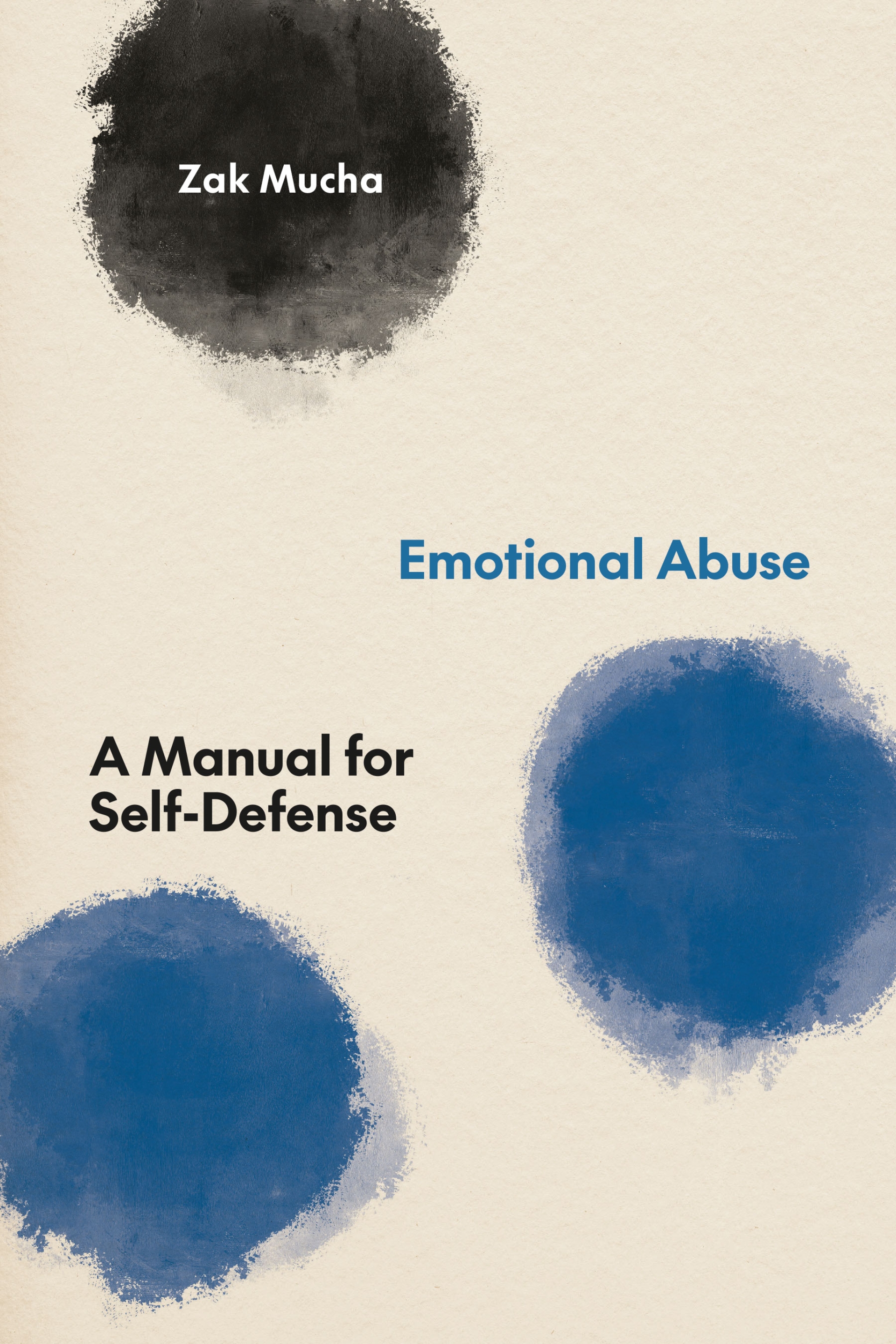from the introduction to Emotional Abuse: A Manual for Self-Defense
Words are dangerous, and they cause permanent harm, because they mean things. Yet it is common for people to say, "Those are just words. They don't mean anything." The reality is that meaning things is the only function of words, and their meaning causes deeper wounds than most physical injuries. As Zak Mucha points out in this brilliant, urgent, impassioned and compassionate book, we can remember the factual details of a physical injury, but we cannot recall the pain, while to remember an emotional harm is to relive the pain, to experience the harm again. The wounds caused by emotional abuse, whether caused by vicious words or cruel silence, are not healed by time.
Zak Mucha understands words; he is an internationally-acclaimed poet and novelist. He also understands silence; he is a serious practitioner of Zen Buddhism. And, as a psychoanalyst who also spent years as a social worker (as well as time as a furniture mover, truck driver, construction worker, union organizer and journalist) he understands how words, and silence, can cause emotional carnage. In this regard, he is the opposite of a pacifist. This book is not for those who believe in turning the other cheek (which will also get slapped, or worse), but for those who want to defend themselves and need training.
Zak Mucha's words are dangerous to abusers, because his words mean things, and they name things. They name and describe the mechanisms of emotional abuse, and in doing so they provide weapons of self-defense and methods of liberation.
Michel Foucault said his books were written for users, not readers, and the same is true of this book, which may save lives.
—dogo barry graham
Comraich airson Lusan Leònte/Wounded Plant Sanctuary
Glasgow
Summer, Year of the Rabbit

